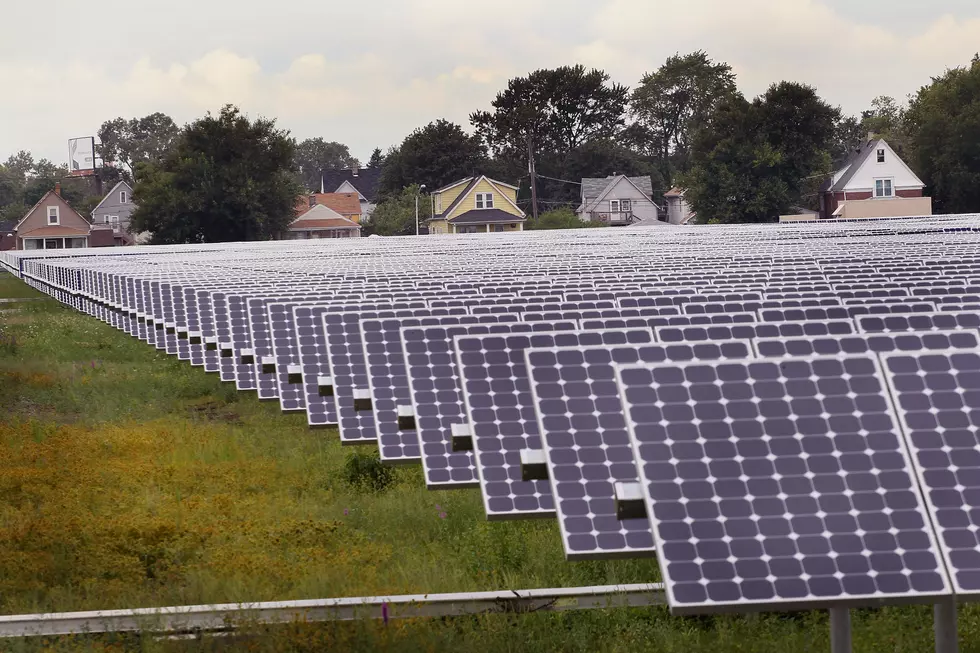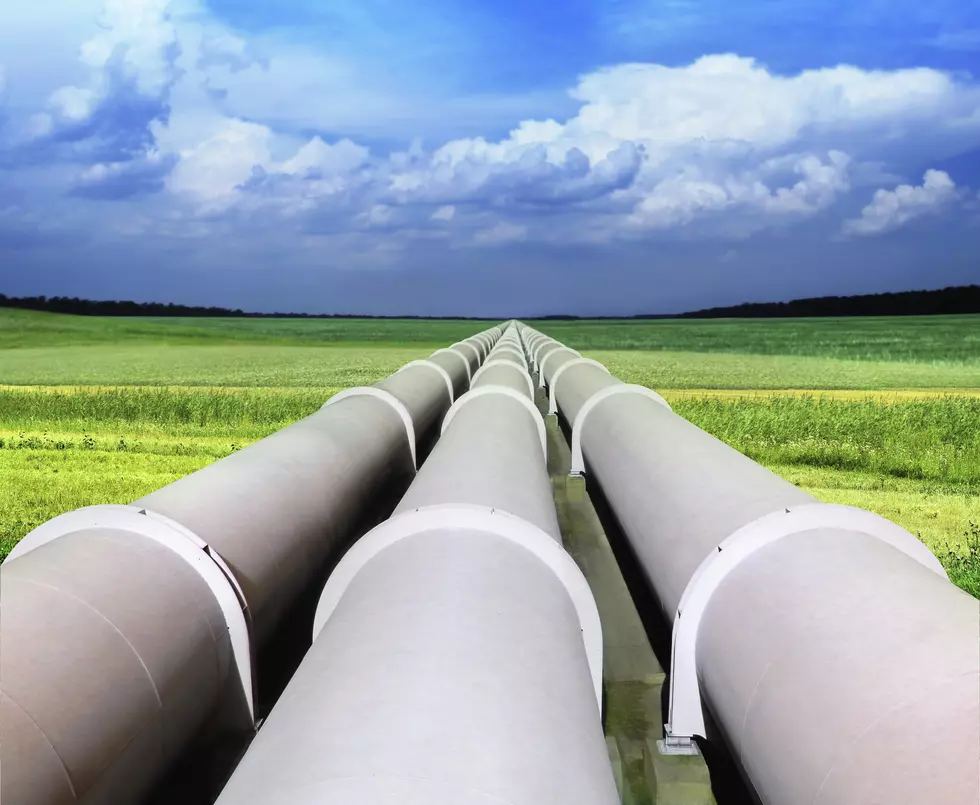
Obama, Clinton Together Again Pitching Efficiency
In a potent political pairing, President Barack Obama and former President Bill Clinton evoked a more prosperous time in America Friday as they jointly pushed a green jobs program that Obama said harkens back to the Clinton administration when "we were firing on all cylinders."
"We can be that nation again," Obama said. "We will be that nation again."
In the spare setting of a downtown Washington construction site, Obama offered a restrained assessment of the current U.S. economy even in the face of Friday's sharp drop in unemployment, from 9 percent to 8.6 percent in November.
Noting that the U.S. has seen 21 straight months of private sector job growth, Obama said, "We need to keep that growth going." And he prodded Congress once again to extend and expand a current Social Security payroll tax cut.
Recalling better economic times, Obama seemed almost nostalgic. Embarking on a re-election campaign, he drew not-so-subtle attention to the successes of the last two-term Democrat to serve in the White House.
"When Bill Clinton was president, we didn't shortchange investment. We didn't say we're going to cut back on the things that we know are going to help us grow in the future," he said.
"We didn't make decisions that put the burden on the middle class or the poor. We lived within our means. We invested in our future. We asked everyone to pay their fair share.
"And you know what happened? The private sector thrived. Jobs were created. The middle class grew, its income grew. Millions rose out of poverty. We ran a surplus. We were actually on track to be able to pay off all of our debt. We were firing on all cylinders."
The unusual pairing of Obama and the popular former president was designed to draw outsize attention to a $4 billion administration energy efficiency initiative that Obama and Clinton teamed up to announce. It aims to achieve achieving fuel savings in government and private sector buildings and more employment at no increased cost to taxpayers.
Obama said the program was a cheap way to help create jobs, save money and cut down on pollution.
"It is a trifecta," he said.
The program's appeal is that the cost to renovate government and private sector buildings is paid off over time by the energy savings. What's more, the contractors who perform the work guarantee that lower energy costs will materialize.
"It is the nearest thing we've got to a free lunch in a tough economy," Clinton said.
The announcement is yet another in a string of White House initiatives designed to address the current weak economy without having to seek congressional approval.
But the program itself was overshadowed by the television-ready image of the incumbent president and the last two-term Democrat to serve in the White House appearing together. The appearance was reminiscent of, though not comparable to, Obama's and Clinton's joint appearance a year ago when Obama gave the former president the stage to endorse a tax deal between Obama and Congress.
Alluding to ads by a Republican-leaning political group that feature Clinton comments about tax increases, Obama said: "I've noticed that some folks on the other side have been quoting President Clinton about it's a bad idea to raise taxes during tough economic times.
"That's precisely why I sought to extend the payroll tax this year and next year. It doesn't mean we lock in tax cuts for the wealthiest Americans. I don't think President Clinton has been on board for that for perpetuity."
To that, Clinton looked on with nodding delight. Clinton spoke first Friday, praising the energy program and
Obama's leadership. Obama followed. But as they wrapped up and Obama began to guide Clinton and other guests away, a reporter asked what advice Clinton had for Obama.
"Oh, he gives me advice all the time," Obama said, eager to leave.
Clinton returned to the microphone, but stayed on message, extolling the green building program.
When a reporter shouted whether a president can win re-election under the current economy, Clinton appeared to hear it and looked ready to respond, but Obama corralled him and ushered him away.
The program outlined Friday is designed to upgrade buildings over the next two years, with a goal of improving energy performance by 20 percent by 2020. The federal government will commit $2 billion to the effort and a coalition of corporations, labor unions, universities and local governments will undertake the other half.
Authority for the program has been in place since the Clinton administration but has been little used. Obama's announcement is yet another in a string of White House initiatives designed to address the current weak economy without having to seek congressional approval.
Gene Sperling, director of the White House National Economic Council, said private economic analyses indicate that the $4 billion plan could generate about 50,000 jobs over two years.
The program builds on an initiative that Obama launched in February and that Clinton led through his Clinton Foundation to get the private sector to invest in greater energy efficiency.
Joining Obama and Clinton was Thomas Donohue, the president and CEO of the U.S. Chamber of Commerce, a long-time proponent of the Energy Saving Performance Contracts.
"We have been pushing the ESPC program for more than a decade because this holds tremendous potential," Donohue said in a statement. "Despite the benefits of ESPCs, the program has been grossly underutilized."
(Copyright 2011 by The Associated Press. All Rights Reserved.)
More From New Jersey 101.5 FM









